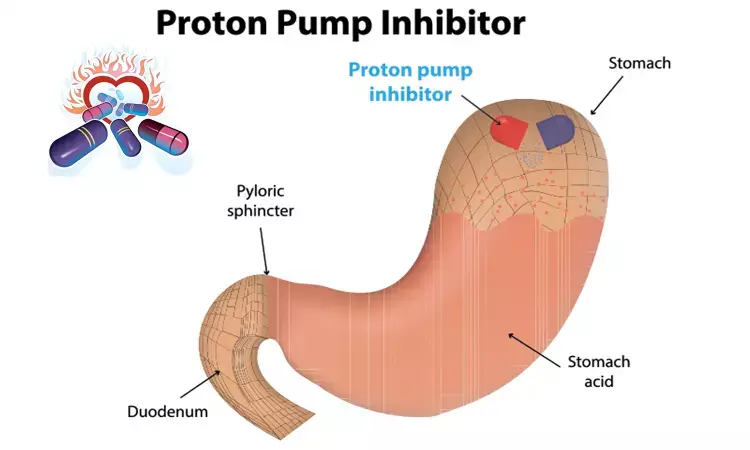- Home
- Medical news & Guidelines
- Anesthesiology
- Cardiology and CTVS
- Critical Care
- Dentistry
- Dermatology
- Diabetes and Endocrinology
- ENT
- Gastroenterology
- Medicine
- Nephrology
- Neurology
- Obstretics-Gynaecology
- Oncology
- Ophthalmology
- Orthopaedics
- Pediatrics-Neonatology
- Psychiatry
- Pulmonology
- Radiology
- Surgery
- Urology
- Laboratory Medicine
- Diet
- Nursing
- Paramedical
- Physiotherapy
- Health news
- Fact Check
- Bone Health Fact Check
- Brain Health Fact Check
- Cancer Related Fact Check
- Child Care Fact Check
- Dental and oral health fact check
- Diabetes and metabolic health fact check
- Diet and Nutrition Fact Check
- Eye and ENT Care Fact Check
- Fitness fact check
- Gut health fact check
- Heart health fact check
- Kidney health fact check
- Medical education fact check
- Men's health fact check
- Respiratory fact check
- Skin and hair care fact check
- Vaccine and Immunization fact check
- Women's health fact check
- AYUSH
- State News
- Andaman and Nicobar Islands
- Andhra Pradesh
- Arunachal Pradesh
- Assam
- Bihar
- Chandigarh
- Chattisgarh
- Dadra and Nagar Haveli
- Daman and Diu
- Delhi
- Goa
- Gujarat
- Haryana
- Himachal Pradesh
- Jammu & Kashmir
- Jharkhand
- Karnataka
- Kerala
- Ladakh
- Lakshadweep
- Madhya Pradesh
- Maharashtra
- Manipur
- Meghalaya
- Mizoram
- Nagaland
- Odisha
- Puducherry
- Punjab
- Rajasthan
- Sikkim
- Tamil Nadu
- Telangana
- Tripura
- Uttar Pradesh
- Uttrakhand
- West Bengal
- Medical Education
- Industry
PPIs may raise risk of fatty liver disease by altering gut microbome: Study

Proton pump inhibitors are generally considered to be a safe and effective drug. The known adverse effects include Clostridium difficile-
But the impact of proton pump inhibitors (PPIs) on liver disease progression has been unknown.
Researchers have found in a nation-wide cohort study that PPI use was associated with an increased risk of fatty liver disease compared with non‐use of PPIs. The Clinicians should therefore consider fatty liver as a potential risk when prescribing PPIs. The study has been published in the journal Gastroenterology.
The Proton‐pump inhibitor (PPI)‐induced hypochondria can change the composition of the gut microbiota, inducing overgrowth of small bowel bacteria, which has been suggested to promote the development of fatty liver disease through the gut‐liver axis.This suggests that changes in gut microbiota can affect the progression of liver disease.
The researchers conducted a retrospective cohort study to investigate the association between Proton‐pump inhibitor use and the risk of fatty liver disease.
They used the Korean National Health Insurance Service‐National Sample Cohort, a nationwide population‐based representative sample, from January 1, 2002, to December 31, 2015. PPI use was identified from treatment claims and considered as a time‐varying variable.
They found that-
During 1,463,556 person‐years of follow‐up, 75,727 patients had at least one PPI prescription and 3,735 patients developed fatty liver disease.
The hazard ratio (HR) for fatty liver disease comparing PPI users to non‐PPI users was 1.68 [95% confidence interval (CI), 1.61–1.75].
When adjusted for multiple confounders, including age, sex, body mass index, smoking, alcohol intake, exercise, income level, and comorbidities, the association was still significant (HR, 1.50; 95% CI, 1.44–1.57).
After considering the amounts of PPIs stratified by cumulative defined daily dose, the dose‐response effect was observed until 180 days.
Subgroup analysis also revealed that PPI use was correlated to an increased risk of fatty liver disease.
The researchers concluded that this current national wide cohort study suggests that Proton‐pump inhibitor use was associated with an increased risk of fatty liver disease compared with non‐use of PPIs. Clinicians should consider fatty liver as a potential risk when prescribing PPI.
For further reference log on to:
Dr Kamal Kant Kohli-MBBS, DTCD- a chest specialist with more than 30 years of practice and a flair for writing clinical articles, Dr Kamal Kant Kohli joined Medical Dialogues as a Chief Editor of Medical News. Besides writing articles, as an editor, he proofreads and verifies all the medical content published on Medical Dialogues including those coming from journals, studies,medical conferences,guidelines etc. Email: drkohli@medicaldialogues.in. Contact no. 011-43720751
Next Story


